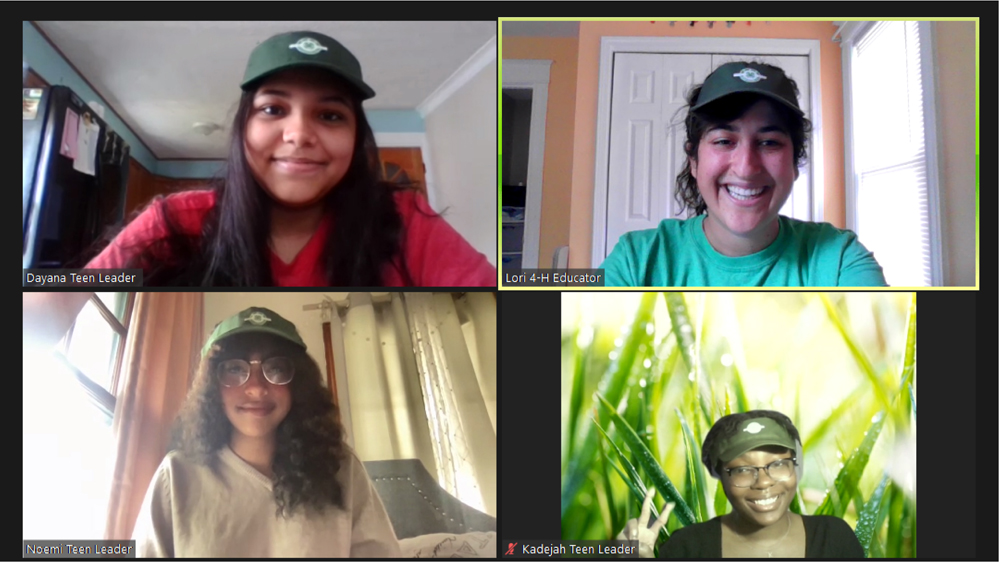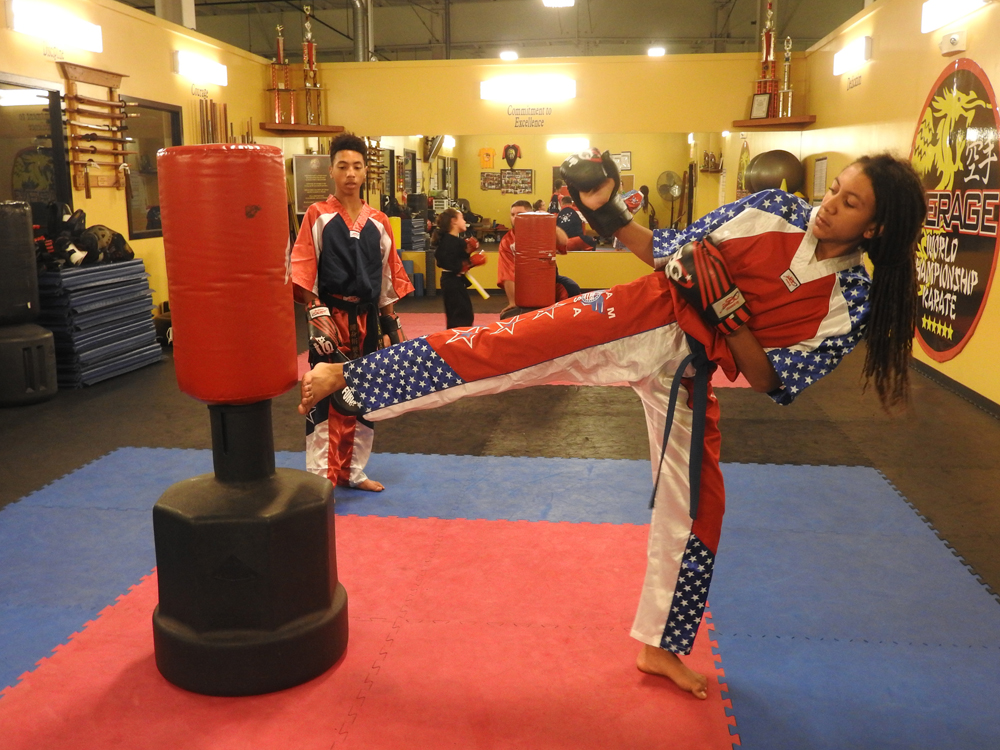Monroe County 4-H Teen Leaders share How to Curb our Carbon Appetite

“What is the atmosphere, and what are some reasons why Earth’s atmosphere is important to life?” 4-H Teen Leader, Dayana, poses to a class of eighth-graders.
This question kicks off the Curbing our Carbon Appetite Challenge. The Cornell Cooperative Extension of Monroe County (CCE-Monroe) 4-H program took part in the 2021 National 4-H Ag Innovators Experience (AIE) this spring. This experience, sponsored by National 4-H Council and Bayer, empowers local teen leaders to teach a lesson to younger youth on applying STEM skills to address real-life agriculture challenges. Through hands-on activities and demonstrations, teen leaders help youth understand the effects of higher levels of atmospheric carbon on Earth’s temperature and share ways we all can reduce our carbon footprint.
CCE-Monroe 4-H partnered with the Upward Bound Program at Monroe Community College to select and support four youth leaders. Upward Bound Program Coordinator, Alice Gray, supported the teen leaders throughout the experience. To prepare for teaching, teen leaders participated in 30 hours of training.
Gray shares the teen leaders’ confidence and comfort with the materials grew throughout the training and with each teaching experience. “Our teen leaders put in a lot of hard work to learn the material and prepare for teaching,” Gray said. “At the beginning, our teen leaders were apprehensive. Then, as they started teaching, they made the lesson their own, and their leadership skills grew. It was impressive to see them adapt activities for a virtual learning environment and with the different age groups.”
As part of preparing to teach, teen leaders reflected on their own experience in the classroom as a student and what they appreciated about different teachers’ teaching styles. After leading the Curbing our Carbon Appetite Challenge, teen leaders took away a better understanding of what happens on the other side of the classroom.
Teen Leader, Dayana, shared that students will pick up on and respond to the effort and energy teachers show. Remembering the importance of having a good attitude and showing confidence helped her overcome fears of being in front of a group.
In addition, Dayana shared she learned the importance of balance when teaching. “It is important to be attentive, but not overbearing, to give students the space to process and ask questions,” Dayana said.
Teen leaders taught over 130 Monroe County youth ways that we all can reduce our carbon footprint and fight climate change. Lessons were taught in school and community settings and included building atmospheric carbon models to represent climate change effects on Earth and creating a carbon-friendly lunch. In addition, teen leaders discussed carbon-friendly actions that agriculture, businesses and industry, and individuals and families can take to benefit their community.
Educator Sheila Eagan shared that she enjoyed it when teen leader, Morgan, built atmospheric carbon models to show her classes. “It was great to have a visual of how the greenhouse effect actually works, especially for my English Language Learners,” Eagan said. “Being able to ‘see’ what the greenhouse effect does after making some hypotheses was a nice connection to science.”
From training to teaching, teen leaders’ confidence and knowledge grew throughout the program. Teen leader, Kadejah, shared she will use the leadership and teaching skills from AIE in her future endeavors. “At first, I was kind of scared to teach,” Kadejah said. “As I did it more and more, I felt more comfortable in leading the kids and directing them through activities. I enjoyed learning about and teaching ways we can help the environment.”
Having teens lead the lesson helps younger students feel more engaged and relate to the subject matter. “Having [teen leaders] teach our younger students shows them what is possible,” Eagan said. “Watching them light up with questions and connections on climate change was wonderful. Climate change is such an enormous problem, and our young people are going to bear the brunt of it, so getting them engaged with the problems and, more importantly, the solutions is incredibly important.”
Teen leaders appreciated watching youth participants learn throughout the Curbing Our Carbon Appetite Challenge. “My favorite part of this experience has been being able to witness the learning experience and growth of the participants,” Teen Leader, Noemí, said. “To see [participant’s] faces glow when they see that they can make a difference is so rewarding, and it makes me feel like I’m making a difference.”
The Monroe County 4-H Program is offered through Cornell Cooperative Extension to the youth of Monroe County. Learn more at http://monroe.cce.cornell.edu/4-h-youth-development.
Provided information



